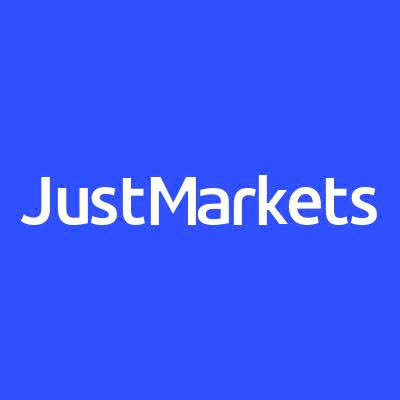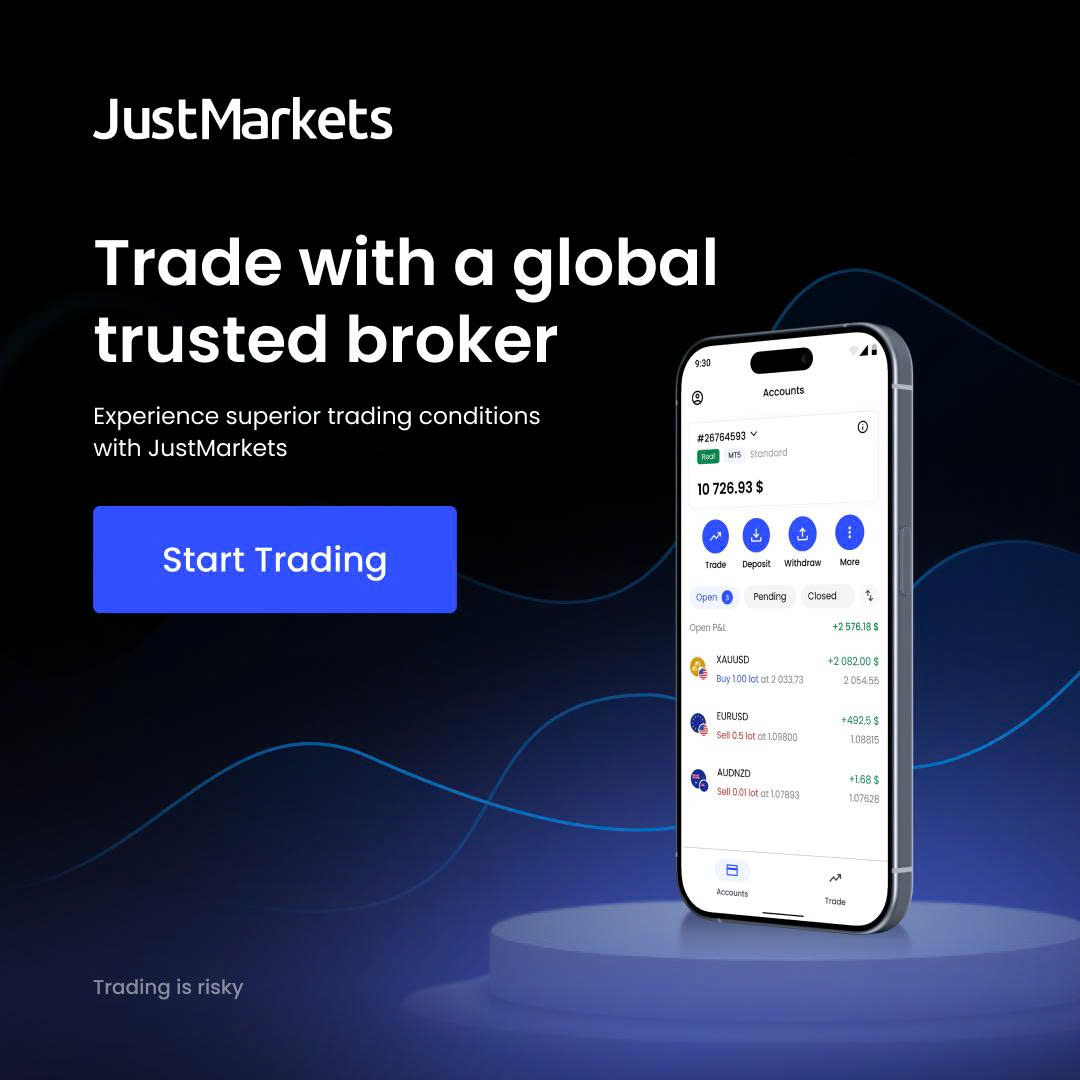
7 minute read
Is JustMarkets Regulated in Nigeria? A Clear Answer for Traders
from JustMarkets
by Exness_India
If you're a Nigerian trader wondering, "Is JustMarkets regulated in Nigeria?" the short answer is no, JustMarkets is not regulated by any Nigerian authority, such as the Central Bank of Nigeria (CBN) or the Securities and Exchange Commission (SEC). However, JustMarkets is a globally recognized broker regulated by several international bodies, which may still make it a viable option for Nigerian traders. In this article, we’ll dive into JustMarkets’ regulatory status, what it means for you as a Nigerian trader, and how to make an informed decision when choosing a broker. Let’s get started!

✅ Trade with JustMarkets now: Open An Account or Visit Brokers 👈
Understanding JustMarkets’ Regulatory Status
JustMarkets, formerly known as JustForex, is a multi-asset broker founded in 2012, offering trading in forex, CFDs, commodities, indices, and cryptocurrencies. It’s headquartered in Seychelles and operates through multiple entities, each regulated by different international authorities. Here’s a breakdown of their regulatory framework based on the latest information:
Seychelles Financial Services Authority (FSA): Just Global Markets Ltd. holds a Securities Dealer License (SD088). The FSA is a Tier-3 regulator, meaning it has less stringent requirements compared to top-tier regulators like the UK’s FCA or Australia’s ASIC.
Cyprus Securities and Exchange Commission (CySEC): JustMarkets Ltd. is regulated under license number 401/21. CySEC is a Tier-1 regulator, offering robust oversight and investor protections, including a compensation scheme of up to €20,000 in case of broker insolvency.
Financial Sector Conduct Authority (FSCA) in South Africa: Just Global Markets (PTY) Ltd. is authorized as a Financial Service Provider (FSP number 51114). The FSCA is a respected regulator in Africa, ensuring client fund segregation and fair practices.
Financial Services Commission (FSC) in Mauritius: Just Global Markets (MU) Limited operates under License number GB22200881. Like the FSA, the FSC is considered a Tier-3 regulator with lighter oversight.
While JustMarkets boasts regulation in multiple jurisdictions, it does not hold a license from any Nigerian regulatory body. In Nigeria, the Central Bank of Nigeria (CBN) and the Securities and Exchange Commission (SEC) oversee financial markets and brokers. The absence of local regulation means Nigerian traders may face challenges in seeking legal recourse if disputes arise.
Why Regulation Matters for Nigerian Traders
You might be wondering, “Why should I care about regulation?” Well, regulation is like a safety net. It ensures that a broker operates transparently, protects your funds, and adheres to strict financial standards. For Nigerian traders, choosing a regulated broker reduces risks like fraud, fund mismanagement, or withdrawal issues. Here’s why this matters:
Fund Security: Regulated brokers are required to segregate client funds from their operational capital, reducing the risk of losing your money if the broker faces financial trouble. JustMarkets claims to segregate client funds across all its entities, which is a positive sign.
Negative Balance Protection: This feature ensures you can’t lose more than what’s in your trading account, protecting you from debt during volatile market conditions. JustMarkets offers this across its entities, which is great for beginners.
Dispute Resolution: With a locally regulated broker, you can turn to bodies like the SEC or CBN for help. Since JustMarkets isn’t regulated in Nigeria, resolving disputes might involve international regulators, which can be complex and time-consuming.
Is JustMarkets Safe for Nigerian Traders?
Even though JustMarkets isn’t regulated in Nigeria, its international licenses provide a level of credibility. The CySEC license, in particular, is a strong point, as it’s a Tier-1 regulator known for strict compliance standards. Additionally, JustMarkets has safety measures like:
Segregated Accounts: Client funds are kept separate from company funds, reducing the risk of mismanagement.
SSL Encryption: Their website and trading platforms use secure connections to protect your data.
Negative Balance Protection: This ensures you won’t owe money if trades go south.
However, there are some red flags. Some reviews, like those from FxScouts Nigeria, highlight concerns about weak regulatory oversight (particularly with the FSA license) and reports of withdrawal difficulties. While JustMarkets claims to process withdrawals within 1–2 hours during business hours, some Nigerian traders have reported delays, which could be a concern.

✅ Trade with JustMarkets now: Open An Account or Visit Brokers 👈
Pros and Cons of Trading with JustMarkets in Nigeria
Let’s weigh the benefits and risks to help you decide if JustMarkets is right for you.
Pros
Low Entry Barrier: The minimum deposit is just $10, making it accessible for beginners.
High Leverage: Offers leverage up to 1:3000, which can amplify profits (but also risks).
Wide Range of Instruments: Access to over 260 instruments, including forex, cryptocurrencies, and commodities.
User-Friendly Platforms: Supports MetaTrader 4, MetaTrader 5, and a proprietary mobile app, all popular among Nigerian traders.
No Deposit/Withdrawal Fees: Except for cryptocurrencies, JustMarkets doesn’t charge fees for transactions, which is a plus for cost-conscious traders.
Cons
No Nigerian Regulation: Lack of oversight from the CBN or SEC means limited local recourse for disputes.
Withdrawal Issues: Some traders report delays or difficulties withdrawing funds, which raises concerns about reliability.
High Leverage Risks: Leverage up to 1:3000 can lead to significant losses, especially for inexperienced traders.
Limited Local Support: Without an official office in Nigeria, customer support may feel less personalized for Nigerian traders.
What Should Nigerian Traders Do?
If you’re considering JustMarkets, here are some practical steps to ensure a safer trading experience:
Verify Regulatory Status: Check JustMarkets’ licenses directly on the regulators’ websites (e.g., CySEC, FSCA). This confirms their claims and ensures they’re in good standing.
Start Small: Begin with the minimum deposit ($10) to test the platform, especially withdrawals, before committing larger sums.
Understand the Risks: High leverage and unregulated status in Nigeria increase risks. Only trade what you can afford to lose.
Explore Alternatives: Consider brokers regulated by the CBN or SEC, or those with stronger Tier-1 regulation (e.g., FCA or ASIC). Popular alternatives include HFM, Exness, or AvaTrade, which have better reputations for Nigerian traders.
Use Demo Accounts: JustMarkets offers demo accounts, which are perfect for testing their platform and strategies without risking real money.
Tips for Choosing a Safe Broker in Nigeria
To protect your funds and trade confidently, keep these tips in mind when evaluating any broker, including JustMarkets:
Check for Tier-1 Regulation: Brokers regulated by the FCA, ASIC, or CySEC offer stronger protections than those with only Tier-3 licenses (like FSA or FSC).
Read User Reviews: Platforms like Traders Union or FxScouts provide insights from real traders. Look for patterns in complaints, especially about withdrawals.
Test Customer Support: Reach out to JustMarkets’ 24/7 support via live chat or email to gauge their responsiveness.
Understand Fees: JustMarkets offers competitive spreads (starting at 0.3 pips) and no deposit/withdrawal fees for most methods, but confirm there are no hidden charges.
Look for Local Compliance: If possible, choose a broker that supports Naira accounts to avoid currency conversion fees, as JustMarkets doesn’t offer NGN accounts.
Final Thoughts: Should You Trade with JustMarkets in Nigeria?
JustMarkets is not regulated in Nigeria, which is a significant drawback for local traders seeking robust legal protections. However, its regulation by CySEC, FSCA, and other bodies, along with features like low deposits, high leverage, and a wide range of instruments, makes it appealing for those willing to accept the risks. The reports of withdrawal issues and weak oversight from Tier-3 regulators (FSA, FSC) suggest caution, especially for beginners.
If you decide to trade with JustMarkets, start small, use a demo account, and verify their regulatory status. For safer alternatives, consider brokers with stronger regulation or local licensing in Nigeria. Trading is risky, and your capital is always at stake, so prioritize due diligence to protect your investments.
✅ Trade with JustMarkets now: Open An Account or Visit Brokers 👈
Read more:










